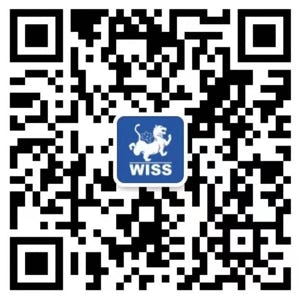NAVIGATION MENU
RELATED ARTICLES
WESTERN INTERNATIONAL SCHOOL OF SHANGHAI
555 Lian Min Road, Xujing Town, Qing Pu District,
Shanghai, PRC, 201702


Admissions 1

Admissions 2

OFFICIAL WECHAT
WESTERN INTERNATIONAL SCHOOL OF SHANGHAI
555 Lian Min Road, Xujing Town, Qing Pu District,
Shanghai, PRC, 201702

OFFICIAL WECHAT
拥抱多样性: 全球创新学习联盟会议在新西兰奥克兰举行
全球创新学习联盟(GAIL)是一个著名的学校网络,致力于促进教育领域的创新、合作和文化交流。 上海西华外籍人员子女学校(WISS)很荣幸成为全球创新学习联盟(GAIL)的成员,并兴奋地宣布将参加即将在新西兰奥克兰举行的全球创新学习联盟会议。此次会议为上海西方国际学校的学生提供了一次难得的机会,他们将在校长 David Edwards 先生、学术与创新部主任 Timothy Pyeon 先生和设计教师 Nwanneka Okwuosa 女士的陪同下,与其他 GAIL 成员学校共同促进多元化发展。
在中断四年之后,GAIL 会议将在新西兰奥克兰汇聚来自全球各地的教育工作者、管理人员和学生。今年的会议将特别关注多样性,承认多样性为教育机构带来的巨大价值。接受多元化观点、文化和思想的重要性无论怎样强调都不为过,GAIL 的目标是增强教育工作者创造包容性学习环境的能力。
WISS 始终站在倡导多元化和培养学生全球思维的最前沿。学校曾在 2019 年主办过 GAIL 会议,因此对这一活动的意义并不陌生。在 David Edwards、Timothy Pyeon 和 Nwanneka Okwuosa 等主要代表的陪同下,WISS 的学生将有宝贵的机会与来自其他 GAIL 成员学校的同学合作、学习和分享自己的独特经历。
本次会议的主要关注点是多样性,与会者可以期待一个深入探讨文化、种族、语言和社会多样性各个层面的丰富活动。研讨会、小组讨论和互动环节将为与会者提供在自己的学校创建包容性环境所需的工具和知识。会议旨在培养跨文化能力,弘扬学生和教育工作者的不同文化背景。
GAIL 会议之所以如此具有影响力,其中一个关键因素是它强调合作。与会者有机会参与合作项目,交流促进多样性和包容性的想法和最佳做法。通过这些互动,与会者将获得宝贵的见解和创新策略,并将其应用于各自的学校社区。
对于 WISS 的学生和更广泛的 GAIL 社区来说,在新西兰奥克兰举行的 GAIL 会议将是一次难忘的活动。当他们沉浸在一个多元、包容的环境中时,与会者将学到关于同理心、尊重和文化交流之美的宝贵经验。这次会议无疑将成为通过教育创造一个更加和谐和宽容的社会的垫脚石。
在即将于新西兰奥克兰举行的会议期间,WISS 与其他 GAIL 成员学校一道,热切希望为有关多样性的讨论做出贡献。通过参与此次全球对话,学校重申了其促进文化理解、拥抱多样性和推动教育创新的承诺。毫无疑问,GAIL 会议将成为积极变革的催化剂,教育工作者和学生将通力合作,共同建设一个重视和赞美我们丰富差异的未来。
WORLD OF WISS
Explore what happening at WISS, news on student achievements, sports and cultural events.
Videos of activities, events, , parent workshops, and info session recordings at WISS.
Upcoming Events and Past Events
Programs unique to WISS that truly enhance the student learning experience.
Photos of events and activities at WISS.
ADMISSIONS
Introduction message from the Director of Admissions & Marketing.
Learn why parents choose WISS for the education of their children.
Explore the Academic merit-based scholarship programme for high-achieving students.
A Step-by-Step Guide to applying for admission to WISS.
See what is included in the WISS Tuition Fees, Payment Information and Refund Policy.
Eligibility and student placement information.
Discover the benefits of a WISS Education directly from our students and parents.
Document requirements for Admissions.
CONTACT US

Admissions 1

Admissions 2
CAMPUS LIFE
Explore the WISS Campus, our classrooms and facilities through photos, video and Virtual Tour options.
Discover the wide-variety of activities, sports, music, and arts options available to students at WISS.
Learn more about the School Bus Service, School Uniform, Meals, and Health & Safety available to students at WISS.
Read about excursions and the WISS exclusive Explore Shanghai, Explore China, and Global Citizen Trips
ACADEMICS
A Pre-Nursery through Kindergarten Education for Children aged 2.5 - 5 Years Old
A look at the IB Programmes and how it’s rigorous academic programmes benefit student learning at WISS.
Primary Education for Children aged 6 - 12 Years Old
Support, Guidance, and Student Pathways to University.
Secondary Education for Children aged 13 - 18+ Years Old
Programs unique to WISS that truly enhance the student learning experience.
WHY WISS
A roadmap from 2006 to now. 15+ Years as a leader in international education in Shanghai.
Interactive Campus Map to help parents and students discover what has to offer.
From Dance Studio’s to Forest School, WISS offer top-quality facilities that enhance and support the student learning experience.
The inspiration behind the founding of WISS.
Develop your career as an educator and explore available positions at the Western International School of Shanghai.
Learn the qualities we nurture within our students every day.
WELCOME
WISS Academic Programmes and approached to teaching and learning.
WISS Academic Programmes and approaches to teaching and learning.
Learn more about where WISS Graduates attend University.
Our Vision & Mission, Quality Education , and Global Citizenship
High-Quality, World-Class Education available at WISS.
15+ Years of Excellence in Education. See how WISS has grown and developed since 2006.
Discover how WISS enhances student learning experiences through exclusive partnerships.